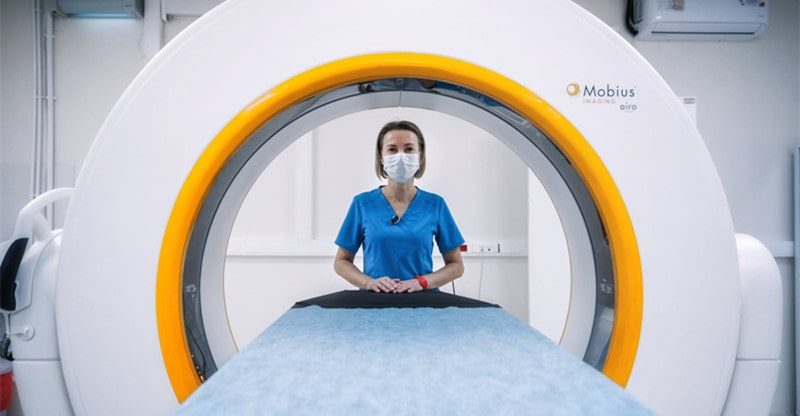Ways to Demonstrate Professionalism in Nursing
Nurses carry the burdensome responsibility of preventing medical errors, quality lapses, and side effects to ensure positive outcomes and patient safety. It’s not easy to grasp the enormity of this responsibility because the slightest mistakes can lead to life-threatening emergencies. A nurse cannot make mistakes because her errors become glaring issues of medical malpractice if handled negligently.
Healthcare is a volatile, competitive, and high-stakes sector where professionals deal with life-and-death crises each day. Professionalism is an indispensable trait that allows healthcare providers, especially nurses, to deliver quality care to their patients. Without professionalism, nurses cannot fulfill their day-to-day responsibilities to maintain the highest quality standards.
The healthcare sector demands all nurses to uphold core competencies, clinical values, and evidence-based practices to improve their performance in medical settings. A lack of professionalism results in lapses and errors that compromise a healthcare professional’s work ethic, credibility, and reliability. Demonstrating professionalism will help you invest in professional growth and career advancement and become an impactful nursing leader.
Keep reading to explore ways to demonstrate your professionalism and build a rewarding nursing career.
Develop Advanced Clinical Expertise
Nurses who lack clinical expertise cannot excel beyond mundane administrative and menial assistance roles. They have little or no opportunities to demonstrate their talents in clinical environments and actively participate in patient care and outcomes. Expanding your clinical expertise and developing core competencies will help you demonstrate professionalism and commit to your role.
Advancing your clinical expertise by pursuing higher education programs will help you develop professionalism with academic excellence. Suppose you’re serving a hospital as a registered nurse, striving to pursue a nursing specialization. In that case, consider enrolling yourself in an online RN to BSN program to sharpen your clinical skills and professional ethic.
You can combine your full-time nursing profession with an online program to enjoy the flexibility and learn at your own pace. A BSN program will deliver advanced training in pharmacology, diagnostic tools, medication administration practices, clinical competencies, and professional integrity. A bachelor’s degree will help you embody core values of medical responsibility, ethical practices, and clinical procedures to develop professionalism.
Contrary to what most believe, professionalism doesn’t come with a course, training module, or on-the-job training. It comes with years of learning and embarking on an enriching academic journey alongside gaining clinical experience. If you dream of nursing leadership, you’re well aware that the journey begins with a BSN program.
Prioritizing Patient Safety & Wellbeing
Nurses have a medical responsibility to uphold and safeguard the rights of their patients and caregivers. Healthcare professionals prioritize patient wellbeing and safety over personal and professional concerns. It’s pertinent to note that nurses are perpetually overburdened with hectic routines and overwhelming occupational stress. However, nurses cannot let their mental health challenges, burn-out, and fatigue interferes with their clinical prowess.
Nurses can request sick days and leaves to recuperate and ensure physical and mental fitness before reporting to work. But when they are engaging with patients and administering clinical care, they must put aside all personal concerns. In this context, professionalism means giving your best to patient care and treatment processes regardless of your circumstances and wellbeing.
Nurses must uphold the highest quality standards to ensure patient safety and extend support and compassion. It’s essential to treat patients and their caregivers with respect, patience, and kindness, addressing their concerns with utmost clarity. Most importantly, nurses must navigate through tough choices to act in the best interests of their patients.
Professionals find themselves taking up various roles while ensuring patient safety and wellbeing. They have to become therapists to ease the stress of an upcoming surgery or painful treatment. At times, they have to serve as advocates when the medical needs of a patient conflict with the expectations of family members.
Effective & Impactful Communication
Communication is a significant element of a nurse’s daily duties and interactions. Nurses constantly communicate with patients, peers, senior healthcare providers, family members, administrative staff, and other stakeholders. They need to develop effective verbal and non-verbal communication skills, alongside being a good, patient listener.
We often fail to understand that listening is an essential component of effective communication. Nurses must listen intently and attentively to communicate effectively. They need strong verbal communication skills to ensure meaningful conversations while conveying information to patients and caregivers. Nurses also need impeccable written communication skills to prepare patient information and records without making glaring errors.
Nurses are responsible for addressing the communication and linguistic needs of their patients. Nurses often convey technical, medical jargon to patients and family members using layman’s terms. It’s crucial to develop cultural sensitivity when dealing with patients and caregivers struggling with language or cultural barriers. In cases where they cannot interact with foreign patients, nurses can request the department to arrange for a translator.
Effective communication skills are crucial to maintaining healthy interpersonal relations, efficient peer collaboration, and patient care quality.
Being a Reliable Team Player
Collaborating with mentors, medical practitioners, peers, and administrative staff is a consistent theme in a nursing career. Unless you’re a family nurse practitioner with a private practice, you will work as part of a nursing team. If you’re not a team player, you cannot contribute value to your nursing team or healthcare facility.
To work as a team player, one has to invest in the team’s success, efficiency, and productivity. This endeavor demands valuing your peers’ contributions, knowledge, and talents and striving for continual improvement. Nurses need to develop a collaborative mindset and a positive attitude to learn from others and contribute their intelligence for mutual growth.
Becoming a team player is crucial to advance your career as a nurse to handle patients and emergencies as part of teams. Do you feel comfortable getting constructive feedback from your peers, mentors, and supervisors? More importantly, do you feel discouraged when the team takes credit for your hard work and intelligence?
Suppose you want to build a lucrative career by demonstrating your talents and garnering recognition. In that case, you should work towards building a private practice by pursuing MSN and DNP programs.
Final Thoughts
Professionalism is an essential trait to uphold ethical and moral responsibilities. It’s natural to feel overwhelmed, exhausted, and burdened after a 12-hour shift, but this fatigue cannot undermine your work ethic.
Nurses must demonstrate accountability, credibility, and work ethic to uphold patient safety standards and prevent quality lapses. Lack of professionalism can instantly destroy your credibility and reputation as healthcare consumers are vocal about expressing their dissatisfaction.



